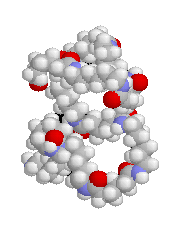Optimizing the Prospective of Polymers: Discover the Complex Benefits and Practical Uses
The diverse advantages and practical usages of polymers proceed to evolve, using innovative remedies to intricate challenges. By exploring just how polymers can boost product durability, drive sustainability campaigns, change health care options, and lead the way for future technological innovations, we can reveal a world of possibilities waiting to be taken advantage of.
Significance of Polymers in Modern Industries
Polymers play a crucial role in modern markets, acting as flexible products that drive technology and effectiveness throughout a vast array of industries. These complex molecules, composed of repeated subunits, have revolutionized markets such as automobile, aerospace, electronics, health care, and much more. In the automobile market, polymers have allowed the growth of light-weight yet sturdy parts, boosting gas effectiveness and general performance. Aerospace sectors depend on polymers for their high strength-to-weight proportion, vital for airplane and spacecraft building. The electronics industry gain from the shielding properties of polymers, important for manufacturing motherboard and digital gadgets (Polymers). Additionally, polymers are thoroughly utilized in the healthcare sector for medicine shipment systems, medical tools, and biocompatible products. Their adaptability, resilience, and cost-effectiveness make polymers indispensable in modern manufacturing processes, fostering advancements and driving progression in different industries worldwide. Welcoming the possibility of polymers is vital to unlocking further advancements and dealing with the evolving requirements of today's commercial landscape.
Enhancing Item Durability With Polymers
With an emphasis on long life and resilience, integrating innovative polymer technologies into product layout has become a foundation of boosting resilience in contemporary production procedures. Polymers use a vast array of residential or commercial properties that add to the general longevity of products. One key advantage is their resistance to corrosion, chemicals, and weathering, making them suitable for usage in various industries where exposure to severe conditions is typical.
Additionally, polymers can be customized to satisfy particular durability requirements, allowing manufacturers to customize items according to their planned usage and anticipated life-span. By including polymers right into item elements, makers can improve toughness and effect resistance, reducing the possibility of damage or use in time.
In addition, polymers are lightweight yet sturdy, offering toughness without including unneeded weight to products. This particular is specifically useful in markets such as aerospace and automobile, where lightweight products are essential for boosting gas efficiency and general efficiency.
Sustainability Developments Through Polymer Technology
In the world of contemporary manufacturing and item design, the cutting-edge application of polymers is driving considerable developments in sustainability practices. Polymer technology plays a vital function in enhancing sustainability by supplying services that decrease ecological effect throughout different industries. One crucial aspect where polymers succeed is in enabling the growth of lightweight yet sturdy materials that add to fuel performance in transportation and minimize general power usage. In addition, the recyclability and biodegradability of certain polymers better promote lasting practices by lessening waste and pollution.
Additionally, developments in polymer innovation have actually led to the development of bio-based and eco-friendly polymers, stemmed from natural sources such as plants, that use an even more lasting alternative to conventional petroleum-based plastics. These eco-friendly polymers not only help in reducing dependence on fossil gas but also decrease greenhouse gas discharges during production. By integrating these ingenious polymers right into producing procedures, firms can lower their ecological impact and move in the direction of even more lasting methods, lining up with worldwide initiatives to deal with environment modification and advertise a round economic situation.
Polymers in Medical Care: Revolutionizing Medical Solutions

One of the vital areas where polymers are making considerable strides is in the like it growth of targeted medicine shipment systems. By encapsulating drugs within polymeric nanoparticles or micelles, scientists can enhance drug security, enhance you could try these out bioavailability, and enable regulated launch, resulting in more reliable treatment routines with minimized adverse effects.
Furthermore, polymers contribute in the area of regenerative medicine, where they are made use of to produce scaffolds that mimic the extracellular matrix, giving support for cell development and tissue regeneration. This technology holds tremendous assurance for repairing damaged organs, promoting injury healing, and progressing tailored medicine approaches.
Basically, the integration of polymers in health care is driving technology, boosting treatment effectiveness, and ultimately enhancing individual outcomes in methods formerly thought unattainable.
Future Applications and Technologies in Polymer Technology
Progressing at the forefront of scientific exploration, polymer technology proceeds to lead the way for groundbreaking applications and advancements forming diverse markets. In the world of lasting packaging, eco-friendly polymers are gaining traction as eco pleasant alternatives to standard plastics. These polymers damage down normally, decreasing the ecological impact of single-use products. In the area of electronics, conductive polymers are changing wearable technology and flexible electronics. Their distinct homes enable the advancement of elastic circuits and sensing units, making it possible for brand-new opportunities in medical care surveillance and clever clothing. Additionally, polymer nanocomposites are enhancing the mechanical and thermal residential or commercial properties of materials, resulting in stronger and lighter components in aerospace and automotive industries. Looking in advance, scientists are discovering the possibility of shape-memory polymers for applications in robotics and biomedical gadgets, where materials that can "keep in mind" and go back to their original shapes Continued offer amazing opportunities for advancement. As polymer innovation continues to develop, the future holds endless opportunities for groundbreaking advancements throughout numerous markets.
Final Thought
